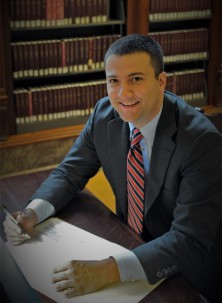I. Child Advocacy
A. School Law
2. Civil Rights
The School District Cannot Always Punish a Student for Off-Campus, Online Speech
In another article, I discussed the rules governing First Amendment protection for student speech. As those rules have developed, the prevalence of off-campus, online speech has dramatically increased. This article discusses how the federal courts are addressing free speech issues arising when students are punished for their off-campus, online speech.
Instant Messages
In D.J.M. v. Hannibal Pub. Sch. Dist., 647 F.3d 754 (8th Cir. 2011), a Missouri high school student sent instant messages to a friend in which he talked about getting a gun and shooting some other students at school. Word about the instant messages spread throughout the school. School officials had to spend considerable time dealing with the concerns of the students and parents and ensuring that adequate safety measures were in place.
The student who sent the instant messages was suspended for the rest of the school year. He challenged the suspension in federal court, but the court upheld the school district's decision.
The school district was allowed to punish the student for his speech even though it occurred out of school. Although "[s]chool officials cannot constitutionally reach out to discover, monitor, or punish any type of out of school speech," they may act "[w]hen a report is brought to them about a student threatening to shoot specific students at school." Id. at 765. Thus, the school district could punish the student for his instant messages because the messages were not protected by the First Amendment.
The first reason the First Amendment did not protect
the instant messages was that
the messages qualified as true threats. A true
threat is a "statement that a reasonable recipient would have interpreted as a serious expression of an intent to harm or
cause injury to another." Doe v. Pulaski County Special Sch. Dist., 306 F.3d 616, 624 (8th Cir. 2002) (en banc). To be liable for making a true threat, the speaker must intend to communicate the threat, either to the object of the threat or to a third party.
The second reason the First Amendment did not protect the instant messages was that they caused a substantial disruption at the school. I discussed the Tinker standard in another article. Because the instant messages caused a substantial disruption at school, interfering with school operations, they were not protected by the First Amendment, and the school district could take action.
Independent Websites
In S.J.W. v. Lee's Summit R-7 Sch. Dist., 696 F.3d 771 (8th Cir. 2012), two brothers set up an independent website that featured posts with a variety of offensive and racist comments as well as sexually explicit and degrading comments about specific, named female classmates at their high school. When word of the website spread through the school, local media arrived on campus, and parents contacted the school with concerns about safety, bullying, and discrimination. The brothers were suspended for 180 days. The court upheld the suspensions.
The court stated that the Tinker rule "applies to off-campus student speech where it is reasonably foreseeable that the speech will reach the school community and cause a substantial disruption to the educational setting." Id. at 777. Because the brothers' speech was "targeted at" the school, the school district could punish them. Id. at 778.
In R.S. v. Minnewaska Area Sch. Dist., No. 12-588 MJD/LIB, 2012 WL 3870868 (D. Minn. Sept. 6, 2012), the court indicated that a school district could not punish a middle-school student for non-threatening, non-disruptive posts on her Facebook wall. The student posted on her wall that she hated one of her school's hall monitors. The post found its way to the school's principal, who gave the student a detention. In a second post, the student "expressed salty curiosity" about who had told on her. Id. at *1. The school then disciplined the student for the second wall post.
The court indicated that the school did not have grounds to punish the student. It stated that out-of-school statements by students "are protected under the First Amendment and not punishable by school authorities unless they [1] are true threats or [2] are reasonably calculated to reach the school environment and are so egregious as to pose a serious safety risk or other substantial disruption in that environment." Id. at *9. The court stated that if the school district could not show that the wall posts posed a substantial disruptive effect, it could not punish the student. The R.S. case also raised Fourth Amendment issues, which are discussed in another article.
Contact a School Law Attorney
The rules regarding off-campus, online student speech are still evolving. In fact, the Supreme Court of the United States has not yet addressed how the First Amendment does or does not apply to such speech. If you or your child faces school discipline due to off-campus, online speech and you believe that the student's First Amendment right to freedom of speech has been violated, you should consider contacting a school law attorney who can advise of your legal rights.



